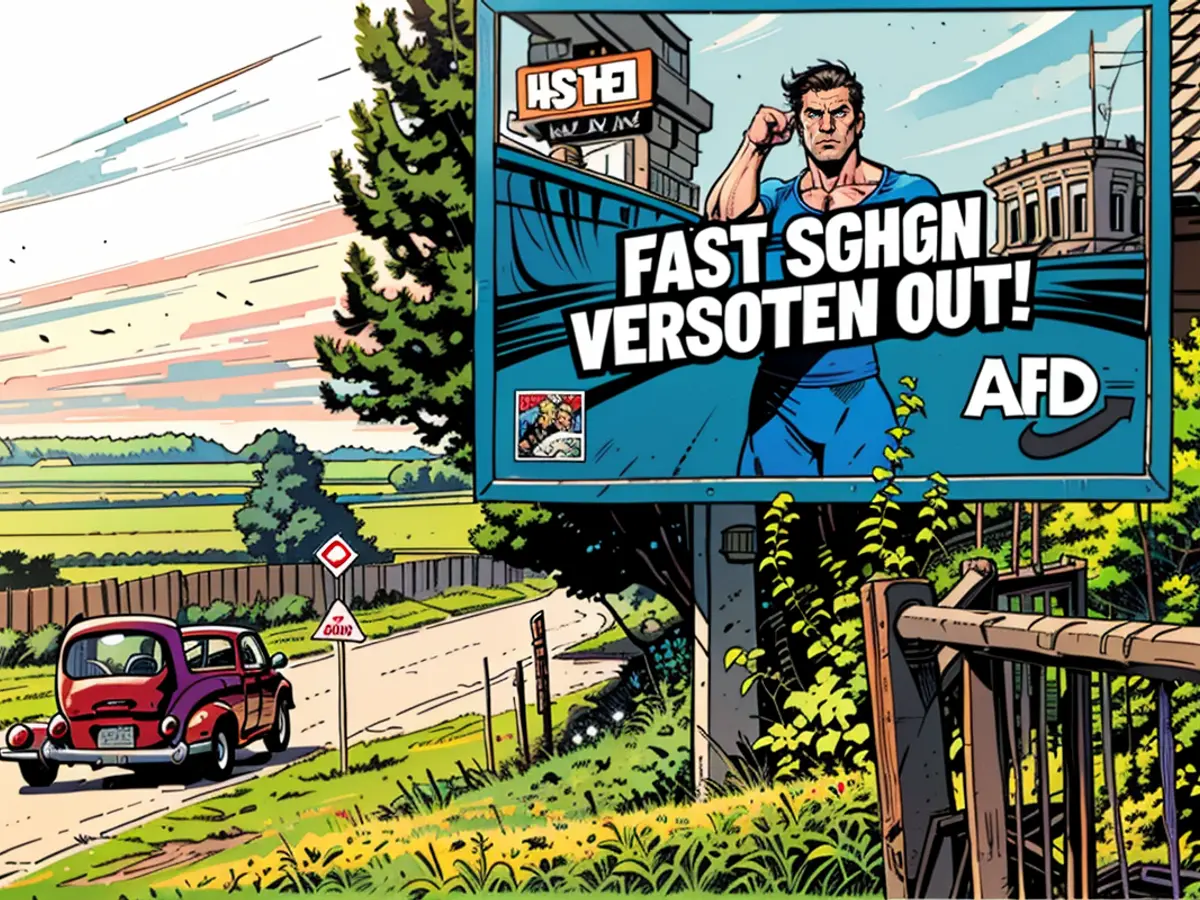Survey results indicate lead for AfD in Thuringia, while Ramelow anticipates extra votes
If a vote was to take place on Sunday, as per a ZDF poll, the CDU, led by candidate Mario Voigt, would secure 23% of votes. Following closely behind are the Alliance for Progress and Social Justice (APGS) with 17%, and The Left, headed by Minister President Bodo Ramelow, with 14%. The SPD would manage only 6%, while the Greens, currently in power through a minority coalition with the Left and SPD, would fail to make it into the state parliament with a mere 4%. The FDP won't be represented in parliament either.
Similar results emerged from a poll published by the institute Infratest dimap for ARD on Thursday, placing the AfD at 30%, the CDU at 23%, and the APGS at 17%. The Left and SPD secured 13% and 7% respectively. The Greens only managed 3%, likewise falling short of the necessary 5% vote share.
Despite poor election prospects, Ramelow maintains hope for a re-election bonus. He is widely regarded as the most popular top politician in Thuringia, as the left-wing politician stated on Friday during the ZDF "Morning Magazine". He hopes voters will remember this when they cast their ballots.
A challenging coalition formation is expected after the election. Partnerships with the AfD are out of the question for all other parties, while the CDU also rules out alliances with the Left and Greens. A red-red-green majority is out of reach. The only viable coalition would be one consisting of CDU, APGS, and SPD. Even within the CDU, partnerships with the APGS are controversial.
Voigt, the CDU's top candidate, sees an opportunity for a stable majority government post-election. He believes the decision will ultimately rest with the voters: "Do they want a nation with confidence or are they prepared to succumb with Höcke?", Voigt warned during the ZDF "Morning Magazine", referring to the far-right AfD figurehead Höcke, whom he considers a danger to the country.
Both the CDU and SPD view collaboration with the APGS as a viable option. SPD top candidate and Interior Minister Georg Maier has admitted that he does not intend to continue the red-red-green alliance. "Thuringia requires a democratic majority government," Maier asserted during the ZDF "Morning Magazine".
Voigt and Maier, however, rejected external interference. Wagenknecht had made the stationing of US medium-range missiles in Germany a prerequisite for a coalition at the state level. "As long as Sahra Wagenknecht makes demands from outside, there is no basis for talks," Voigt made clear. He was open to discussing and resolving Thuringian issues with local APGS leader Katja Wolf, though.
Wolf denied any intention of her party negotiating coalitions. "No, she does not control everything," she said during the ZDF. When asked if the APGS in Thuringia had enough personnel for government participation, Wolf added, "You needn't worry about that."
The FDP and Greens are fighting for parliamentary survival. FDP top candidate Thomas Kemmerich stated with regard to the upcoming election, "We're fighting until 17:59." Green top candidate Madeleine Henfling pointed out that her party often found it challenging to clear the 5% vote threshold in Thuringia.
The Co-Chair of the Thuringian AfD, Stefan Möller, stated during the ZDF "Morning Magazine" regarding immigrants, "It's a myth to claim that the AfD is against all skilled workers, against all immigration." He emphasized, "It is indeed necessary for skilled worker immigration."
New state parliaments will be elected in Thuringia and Saxony next Sunday. Brandenburg follows on September 22.
On Sunday, the citizens of Thuringia will head to the polls to elect their new state parliament. Previous polls suggest that if a vote were to take place on Sunday, the CDU would secure 23% of the votes.







